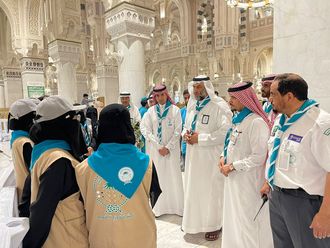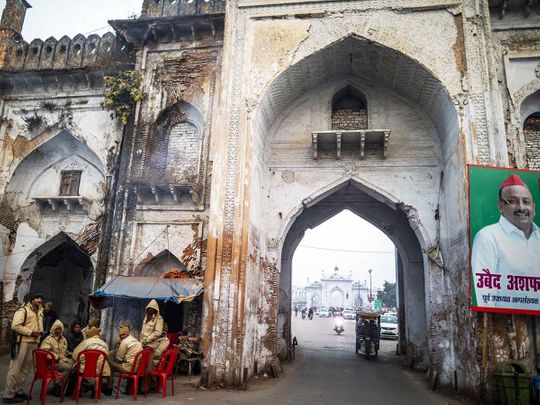
Ever since his brother was shot dead last month during protests in northern India, Mohammad Imran has lived in fear of getting snatched up by the police.
Along with other residents in Meerut, a town of 1.5 million people in the country's most-populous state of Uttar Pradesh, Imran said nightly raids have become routine following a December 20 protest that turned violent. Five people were killed that day, one of the deadliest incidents so far in nationwide demonstrations against a new religion-based citizenship law.
"We have to stay awake because we are afraid the police might come to pick us up," Imran said on December 29 as he sat by a fire in a narrow lane near the mosque where the violence took place. "We Muslims feel cornered. There is an atmosphere of fear."
Uttar Pradesh - a state with more people than Russia in which Muslims make up almost a fifth of the population - has seen some of the most intense clashes over the law. Passed on December 11 in a parliament controlled by Prime Minister Narendra Modi's ruling party, it gives preference to undocumented migrants of all faiths except Islam from neighboring Afghanistan, Pakistan and Bangladesh to seek Indian citizenship.
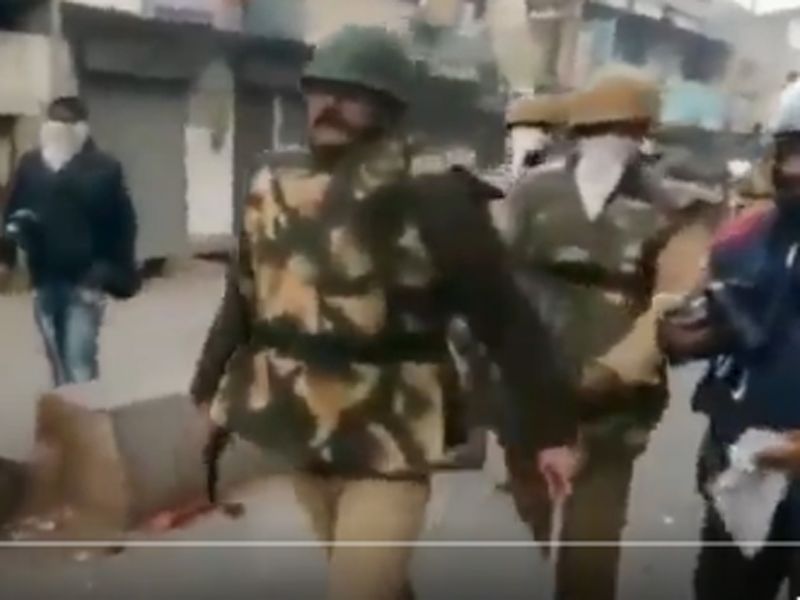
Demonstrations by the law's opponents, who say it erodes India's secular foundations, continued this week across India. Protests in major cities like the financial capital of Mumbai intensified after masked assailants stormed a New Delhi university Sunday night in a violent attack on students and academics. More demonstrations are planned.
So far the protests have had a limited impact on Indian stocks: Equity investors have been more worried about a U.S.-Iran conflict leading to a spike in oil prices, the country's biggest import. But prolonged demonstrations risk distracting the government at a time when the economy is expanding at the weakest pace since 2009, and threaten to inflame long-simmering religious tensions.
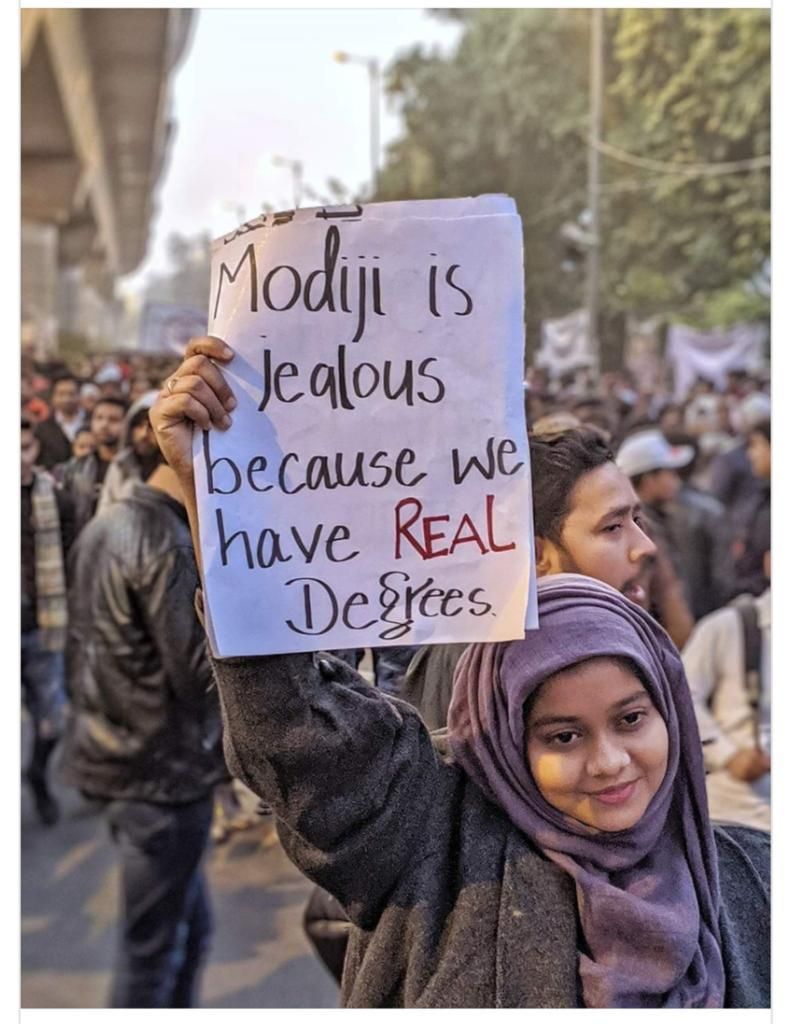
'Toxicity of Hate'
"A protest of this nature is going to further polarize a deeply diverse society on religious lines," said Niranjan Sahoo, a senior fellow at the New Delhi-based Observer Research Foundation who has written books on political polarization. "The toxicity of hate and distrust are sharply visible."
Interviews with more than two dozen people in Lucknow, the state capital, and Meerut, some 88 kilometers (54 miles) away from New Delhi, found many Muslims in Uttar Pradesh - a state controlled by Modi's ruling Bharatiya Janata Party - were on edge. Of the 26 people killed nationally in protests so far, 19 have been in the state. More than 1,000 people have also been arrested in Uttar Pradesh, according to police, more than anywhere else in India.
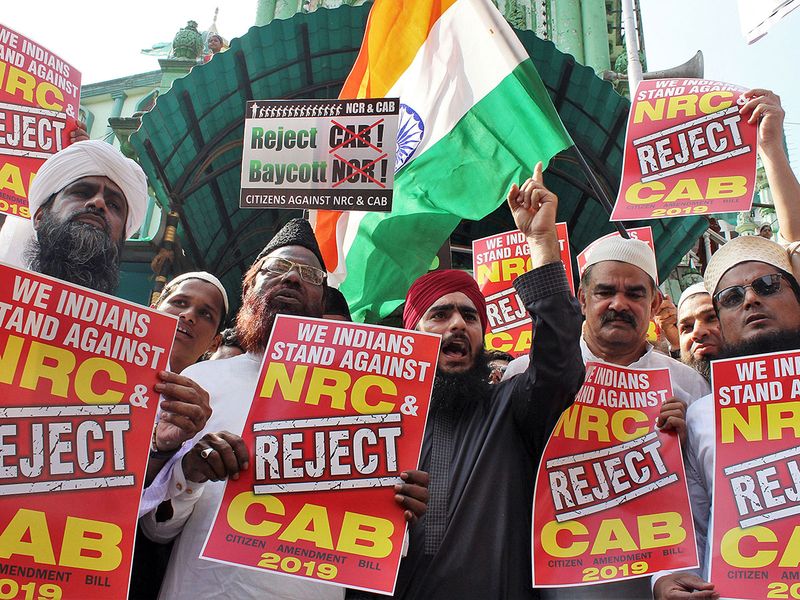
Mohammed Wakeel - the sole bread earner of the family - died on Dec. 19 when he left his house to go to a pharmacy in Lucknow. "He got caught in the chaos and was shot in the abdomen," his weeping father Mohammed Sarfuddin said from the family's rented house in the old city, noting his 28-year-old son had not been part of the protests. "My wife has not spoken ever since my son died."
The events on Dec. 20 in Meerut, meanwhile, remain disputed. Local residents say police shot and killed the five protesters, including Imran's brother. "Why would protesters fire at each other even if they had guns and were firing," said Salim Siddiqui, a local activist who lives in Meerut near the site of the protests.
But the authorities have a different view. Imran's brother and the others died from weapons fired by the protesters, according to Akhilesh N. Singh, additional superintendent of police in Meerut. Officers have arrested 38 people in the city since the protests on Dec. 20, he said, while adding that Muslims and other residents don't need to be afraid.
"Police are only interested in arresting the accused," Singh said. "People should be fearless."
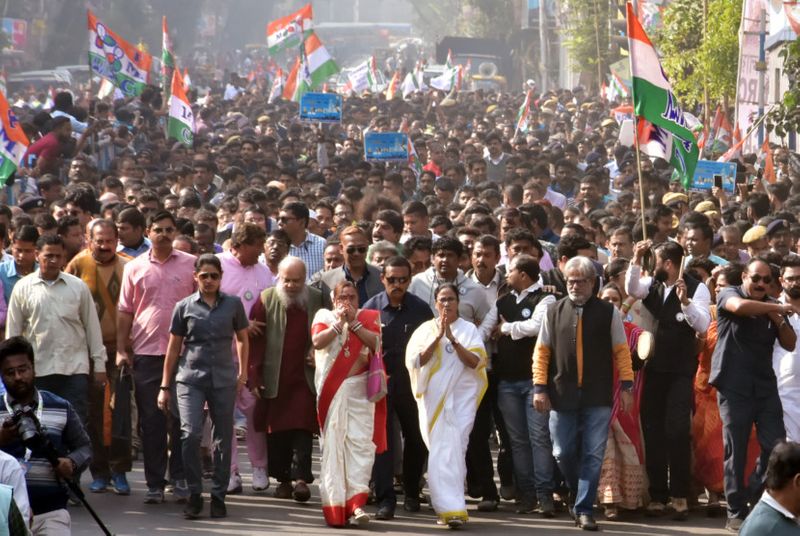
Extracting 'Revenge'
The violence in Meerut occurred one day after the state's leader, Hindu monk and a senior member of the ruling party Yogi Adityanath, declared his government would extract "revenge” from those found guilty of damaging public property. His office blamed "criminal and political forces” for the unrest, adding that 250 police officers were injured across the state - including 62 wounded by bullets fired by protesters. P.V. Rama Shastri, a top police official in Uttar Pradesh, said police only fired weapons in self-defense in one district.
"The government took the steps it considered best under the given circumstances,” said Mrityunjay Kumar, media adviser to Adityanath, when asked about the violence. He added the Uttar Pradesh government was investigating allegations of police brutality and "will take action if we find that police were misusing their power."
Across the state, police have put up posters of "wanted rioters” using photographs of people wearing Islamic skull caps and some covering their faces with masks. Near one of the posters in Meerut, a snack shop owner who identified himself as a Hindu hailed police for shooting at the protesters, saying they deserved it.
Many people interviewed said they haven't left their homes since the violence erupted. The Muslim neighborhoods most affected are comprised of masons, laborers, shoemakers, and embroiders who earn around 200 rupees (about $3) a day.
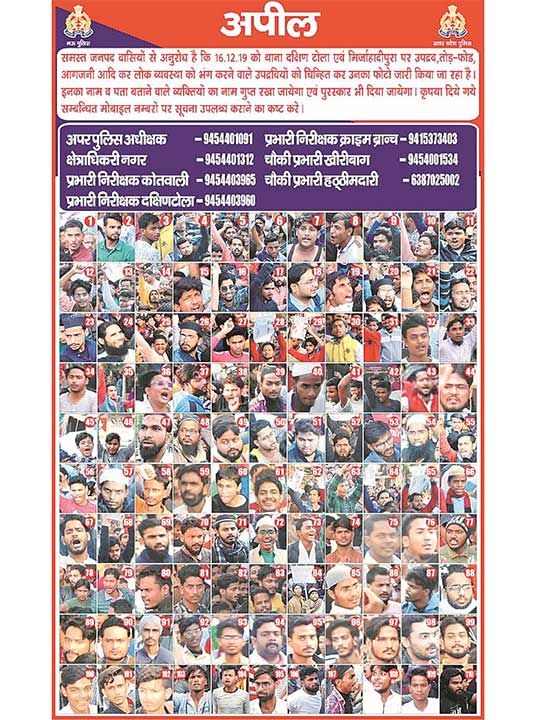
'Open War'
"Businessmen don't want to work with us right now,” said Mohammad Rasul, who does embroidery work from his house in Hussainabad in Lucknow. Paid on a daily basis, he said customers aren't willing to interact with people residing in his area for fear of getting caught in the controversy.
Harsh Mander, a human rights activist and former bureaucrat who visited the site of the unrest in Uttar Pradesh on a fact-finding mission, said police used excessive force.
"The state is at open war with a segment of its citizens,” Mander told a news conference in New Delhi on Dec. 26, citing interviews with victims and his team's assessment from the scenes of the worst violence.
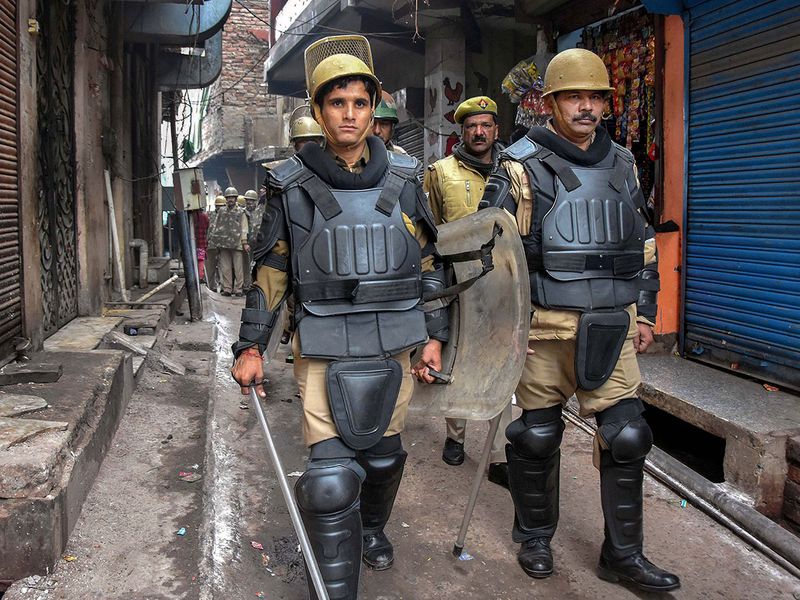
In Meerut, Imran is now worried about supporting his brother's wife and two children on his meager income dealing in household junk. He also doesn't believe police reassurances that the community shouldn't be afraid, pointing to a video circulating in his neighborhood of the Meerut police additional superintendent Singh telling Muslim protesters to go to Pakistan.
"They are abusing a community,” Imran said. "What are we supposed to make of this?"







